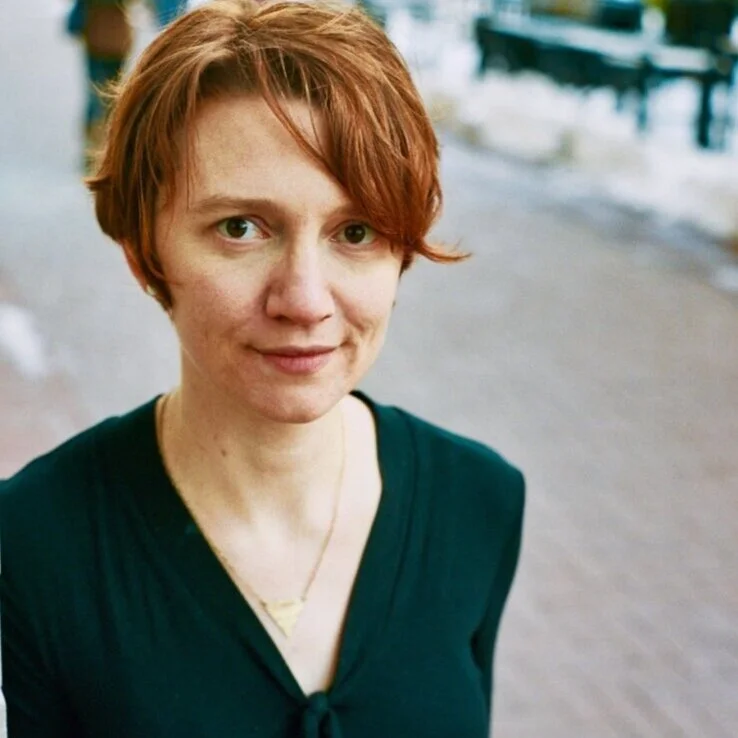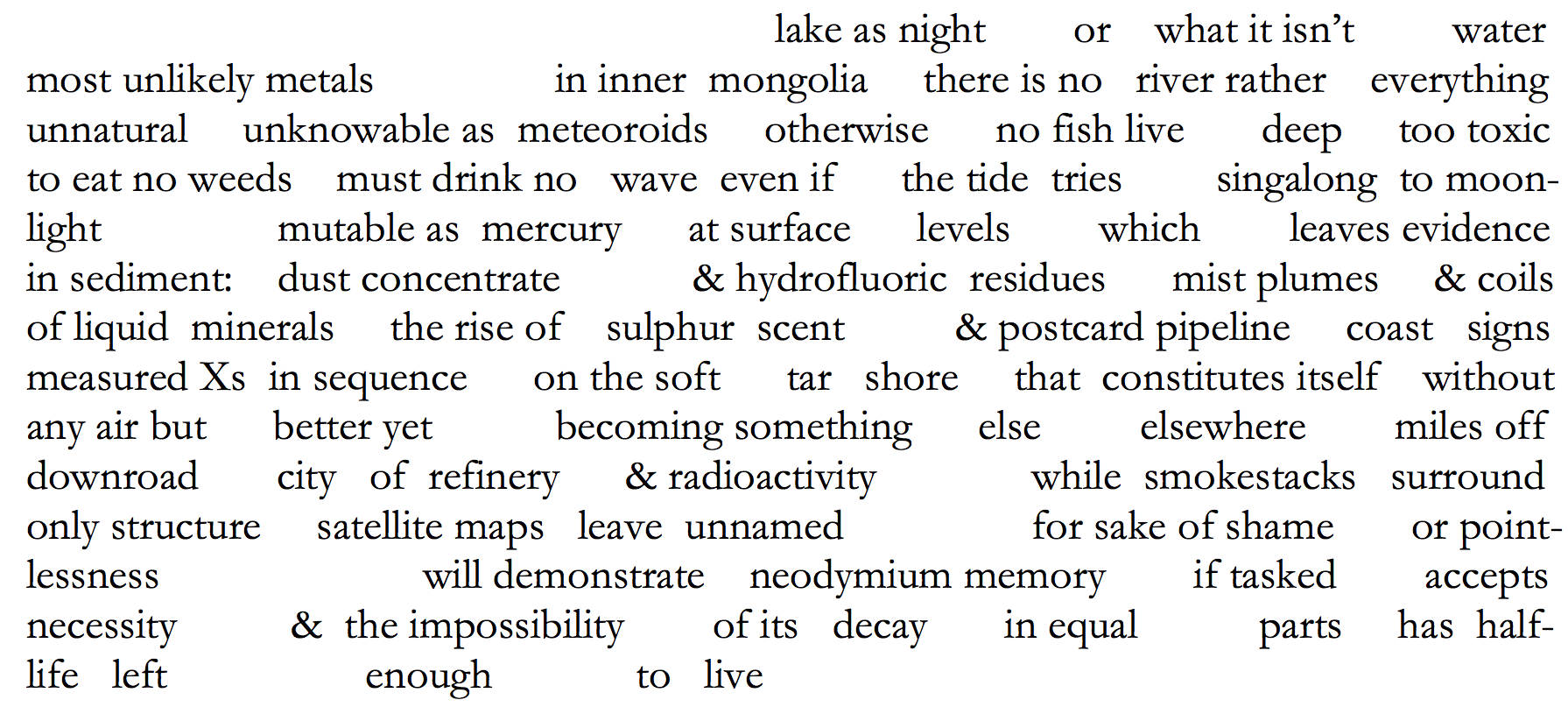TERRACOTTA POMEGRANATE WITH TRACES OF PAINT
nothing except what survives the ancients.
yours and mine alike. take the terra-
cotta pomegranate with traces of paint,
for instance. greek, 4th or 5th century
before christ. the precise shape and size
of its model, faded to the unbaked bread
color common to that region’s cooked earth
remnants. one tip in its persistent calyx
crown still flecked with pigment: weathered
hints of pinkish-red as evidence: it looked
just like this once. like you could eat it. like you
would hold the whole of its firm fauxness
in both hands and think that lacquer skin
could crack into the true fruit’s garnet beads
within. one story goes, each contains seeds
totaling in number torah’s commandments,
though that myth’s as easy to disprove
as it is to lose count trying. I know hebrew
only by phonetics––can pronounce with passing
accent reading right-to-left and have no clue
what I’m saying. I picked it up almost
by accident, a decade after I’d missed
my chance to become bar mitzvah,
which translates to, adulting, in a sense
too-perfect to overstress. my arabic
consists of, forget — one sour instructive
for that family branch’s disconnect.
through millennia, the root word, רימון / رمان
remains twinned along the stem of each language
grown out of the levant, to mean both “fruit
with many seeds,” and “hand grenade.” pome•
granate. the old-french-derived-english
of our lingua franca echoes the two ideas if
you listen close and play semantics. a simple
way to summon spirits. in my new england
dialect, conditioned by ghosts still living
in my throat, root and route will never
homophone. as if one wrought itself out of the sonic
bones of its predecessor. shaped from her rib.
my history’s mixed up with the bigger world of gods
and trade, things borne across, as in the literal gloss
of “translation.” people moving through thought
and places promising home, nightmares
of nation-making, pales of settlement. tongues
tied in marriage knots. it took from the beginning
of time until that day by the famous museum
for me not to ask what are you staring at?
when the stranger fixed me in her glare
on the street in paris. like she was looking
at an exhibit. my face as foreign object.
I’d just come from seeing the clay pomegranate
crammed into an underlit corner of the louvre’s
sub-basement, where it had begged me to explode
the glass cast around its plinth and sunder
apart pith in a bowl filled with water. at least,
that’s how my mother’s mother taught her,
who told me before I knew a word which would
refuse to distinguish fruit from shrapnel. one
name for war, or, better yet, the best method
known to defuse its billion red grains, rendered
separate from the bitter whiteness of its flesh.
RARE EARTH
Baotou Lake, Baogang Steel and Rare Earth Complex, China
Daniel Barnum’s poems and essays appear in or are forthcoming from West Branch, Hayden’s Ferry Review, The Massachusetts Review, The Offing, Pleiades, Muzzle, and elsewhere. A former fellow at the Bucknell Seminar for Younger Poets, they are a current Pushcart Prize and Best New Poets nominee. Their chapbook, Names for Animals, was selected as the winner of the Robin Becker Prize, and is available from Seven Kitchens Press. They live and write in Columbus, Ohio, where they serve as the associate managing editor of The Journal.




![POETRY SPOTLIGHT: GOLDEN
GOLDEN READS TWO POEMS “TWIN” & “[X][Y]/[X][X]”
<iframe src="//www.youtube.com/embed/U8_ECyYUJxw?wmode=opaqu](https://images.squarespace-cdn.com/content/v1/5c76d219e5f7d146504a1dd4/1614565022357-MQMIKOJ2IJH8MEKDTEI4/Screen+Shot+2021-02-28+at+6.21.50+PM.png)
